Having reached the end of this stage of Henslowe's Diary, I had been planning to conclude with some reflections on the plays - both lost and extant - that we've been looking at over the last few months, I wanted to think about the variety of stories that Lord Strange's Men told, but also about the recurring themes and ideas that made their plays distinctive to them.
Unfortunately, I found this entry rather hard to write. That's because I was trying to compose my thoughts on the very day that the UK voted to exit the European Union. I don't mean that I was distracted by the need to stare in horror at the TV (although I was). Rather, it was the unfortunate parallels between what I wanted to write about and what was in the news. In case you are reading this in the distant future, I should explain that the 'Brexit' vote took place following months of public debate that had rapidly veered away from the complex issues of EU policy and had instead degenerated into clumsy arguments about immigration, British/English identity, tradition, and terrorism, all of which had unleashed a cesspool of nastiness and hatred within our sceptred isle.
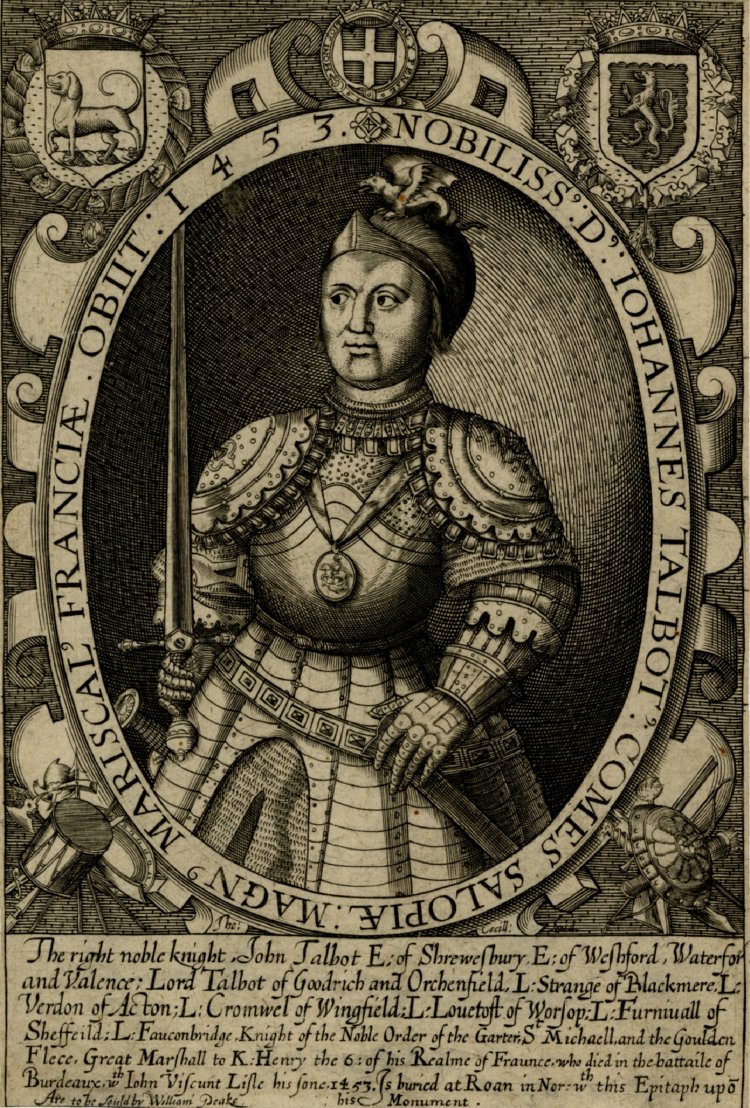 |
Imaginary portrait of Talbot,
"the terror of the French", by
Thomas Cecil, c.1626-32 |
This background made it rather depressing for me to write that
the most-performed play at the Rose was a work of English triumphalism about bashing the French (
Harry VI), and that a remarkable number of the other plays drew on the imagery of the Crusades against Islam in the Middle East. I'm generally reluctant to draw specious connections between Renaissance plays and the modern world, but I couldn't help feeling that I was seeing in the popular culture of 400 years ago the same kind of simplistic nationalism that was unfolding in the vacuous discussions on TV.
However, having thought about it a bit more, I've decided that the popular culture on display in the Rose playhouse was in no way as crass and stupid as the Brexit debates. The plays were certainly violent, and they were definitely written during an era of patriotic triumphalism, but it's surprising how little they invoke mindless flag-waving and encourage more complex responses.
Theatre of violence
The plays of Lord Strange's Men were varied: the company performed histories, tragedies, comedies, and even a pastoral. Despite this, it's very clear that one of their specialities was stage violence: in particular, the audience of Lord Strange's Men enjoyed watching fight scenes.
 |
| From Joachim Meyer's swordfighting manual (1570) |
Most of the plays are about wars -
Harry of Cornwall (English civil wars),
Harry VI (England vs. France),
Jerusalem (the Crusades),
Muly Molocco (Moroccan civil wars),
The Spanish Comedy (Spain vs. Portugal),
Tamar Cam (Mongols vs. the Middle East),
Titus and Vespasian (Romans vs. Jews), and
Zenobia (Roman civil wars). War may also have been present in
Constantine,
Brandimer,
Friar Bacon and
The Tanner of Denmark.
Indeed, it's hard to find anything sweet and fluffy in the repertory. Even the Italianate comedy
Bindo and Ricciardo probably included a horrid death and the moralistic
Knack to Know a Knave describes hideous punishments for the bad guys. The only innocuous-seeming play is the lost pastoral
Cloris and Ergasto,
but for all we know it may have been about shepherds hitting each other with sticks.
This suggests that onstage fighting was one of the specialities of Lord Strange's Men, and that would have fitted with their star Edward Alleyn's reputation for playing larger-than-life warriors. This emphasis on fighting may have been a characteristic of this particular company rather than of early 1590s theatre as a whole. If you look at what Shakespeare was doing around 1592, you find him writing romantic comedies such as The Comedy of Errors and The Two Gentlemen of Verona alongside the gore and war of Titus Andronicus or the Henry VI plays. But there's almost nothing like those at Henslowe's Rose. The Rose was a theatre of violence.
Theatre of triumph
 |
Queen Elizabeth poses with her hand on the globe in the
aftermath of the defeat of the Spanish Armada (1588) |
And what better way to make onstage fighting more thrilling than to mix it with triumphalist patriotism? Such a theme would certainly have been very much in tune with the public mood, as England was still buoyant after its defeat of the invading Spanish Armada in 1588. By 1592, England was engaged in a war in France to support French Protestants,
It's no surprise, then, that the Rose's most frequently-performed play was
Harry VI, which packed the theatre with spectators who reportedly wept to see the English hero Lord Talbot fight bravely against the French army, and presumably cheered as the English defeated Joan of Arc (who is portrayed as a devil-summoning witch). Another play in the same mode may have been the popular but mysteriously one-off
Tanner of Denmark;
if it was indeed the play we know as Edmund Ironside, it has an English hero who defeats the brash Danish invaders.
But this kind of straightforward nationalism is actually surprisingly rare in the Rose repertory. England itself rarely appears in the plays, and when it does it's compromised:
A Knack to Know a Knave portrays an England filled with sinners, and
Harry of Cornwall is about a civil war, a traitor, and a sacrilegious murder.
A Looking-Glass for London lectures the city on its similarity to the sinful Nineveh in the Bible.
 |
| Tiepolo, Queen Zenobia Addressing her Troops (c.1725) |
Of course, tales set in lands far away could still tap into the national mood. The lost
Zenobia may have used its eastern warrior heroine to reenact the victories of Queen Elizabeth.
The Spanish Tragedy permits its audience to enjoy seeing vicious Spaniards murder each other. A play like
Jerusalem might enable its audience to identify with French warriors as they push the Turks from the Holy City, while
Tamar Cam may have done the same as its Christianized Mongol protagonist scourged the Islamic world.
If we read those plays that way, we can also see an 'us vs. them' narrative in the surprising number of plays that use the imagery of the Crusades. One thing I had not expected when beginning this blog is the almost continuous theme of war with Islamic nations. Many of the plays are set in the Middle East, and the Crusades are usually somewhere in the background of others. Wars involving Muslims are very important to
The Jew of Malta,
Muly Molocco, Tamar Cam, and
Jerusalem. The Crusades are in the background, if not enormously significant, of
Orlando Furioso. There is a possibility that they were also included in
Harry of Cornwall, Brandimer and
Sir John Mandeville. And on a vaguer level, the topic of war between east and west is present in
Titus and Vespasian and
Zenobia. Perhaps, then, the topic of Holy War was another, broader dimension of the belligerent nationalism on display in the Rose plays.
But I actually think not...
Theatre of doubt
_Cropped.jpg/609px-Siege_and_destruction_of_Jerusalem_(f._155v)_Cropped.jpg) |
Sixteenth century illustration of
the Romans destroying Jerusalem |
It's wrong to say that all of the Rose plays tap into a simplistic 'us vs. them' mentality.
The Spanish Tragedy, for example, was not simply an excuse to gloat at dying Spaniards; audiences sympathised with the suffering of the grieving father Hieronimo and his desire for revenge. In
Muly Molocco, the audience is encouraged to sympathise with the Muslim Abdelmelec against the cruel Muly Mahamet and his European supporters.
The play with the most consistently high box office was
The Jew of Malta, a satire on hypocrisy in all religions, and on the human ability to use religion to justify crimes - it doesn't single out any one religion for special hatred.
Titus and Vespasian may have used the Jewish Wars to satirize religious extremism in England.
And even
Harry VI laments the death of English heroes like Talbot and their replacement by squabbling, self-serving politicians, while
Edmund Ironside ends with an English machiavel plotting to undermine the hero's triumph. So perhaps we should not automatically assume any of these plays to have produced merely straightforward responses.
The Rose plays are not always well-written and they certainly place great emphasis on spectacle, special effects and, yes, fighting. But if the authors intended their exciting, epic, and exotic tales to indulge in simplistic xenophobia and nationalism, they were doing it all wrong.
Apologia
Well, that's what I think anyway. These are of course vast and complex subjects that have been written about in far more detail elsewhere. Every single sentence that I've written above could be debated, and indeed probably has been, by scholars who know a lot more than I do. All I really wanted to get off my chest is that Elizabethan popular culture, as reflected in the Rose plays, is far more intelligent and sophisticated than a Brexit poster...



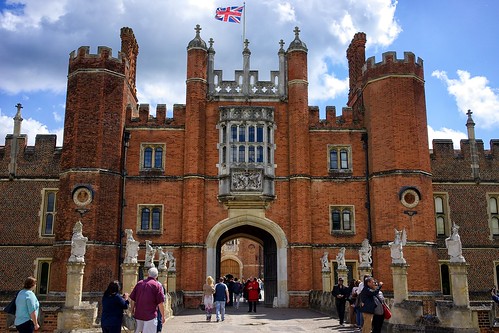
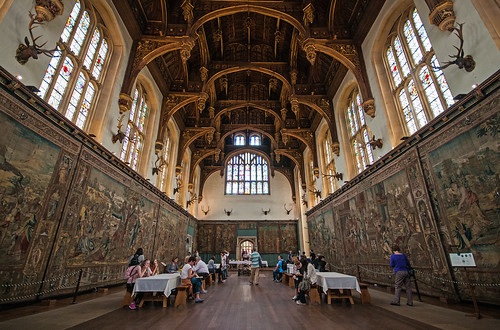


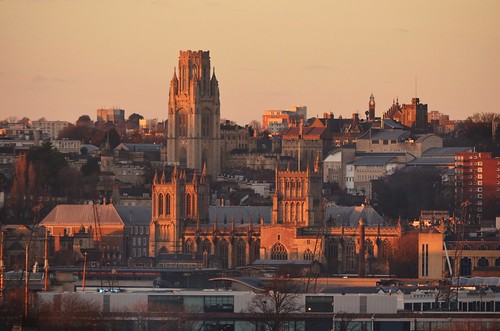

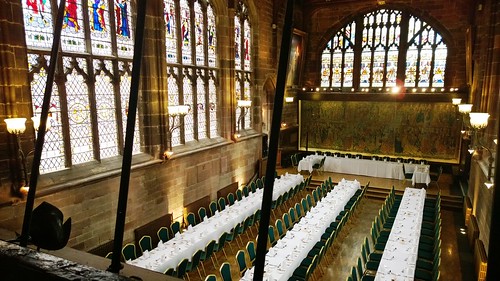
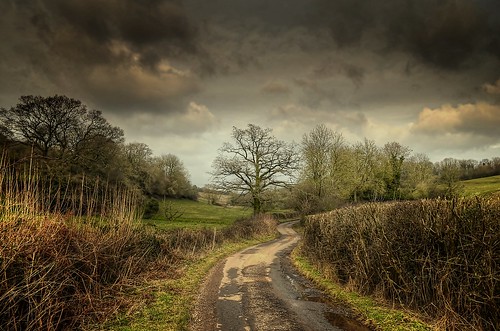




_Cropped.jpg/609px-Siege_and_destruction_of_Jerusalem_(f._155v)_Cropped.jpg)






.jpg/700px-Portrait_of_Alof_de_Wignacourt_and_his_Page-Caravaggio_(1607-1608).jpg)